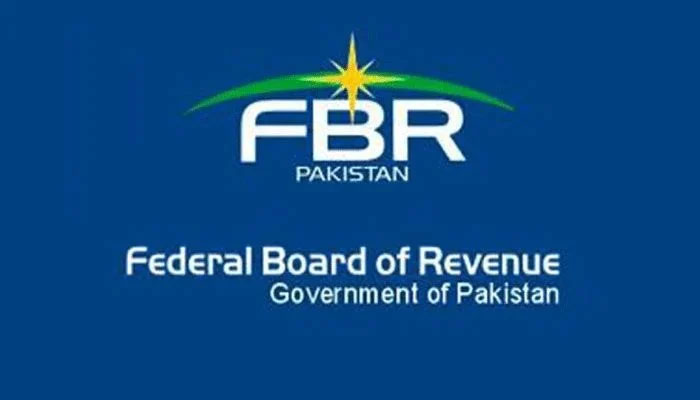FBR protecting tax exemptions given to the elite
The bill proposes withdrawing exemption from Flying and Submarine Allowance and allowances received by pilots
ISLAMABAD: The Federal Board of Revenue (FBR) has proposed abolishing few tax credits and allowances through the Finance Bill 2022 but protected exemptions given to the ruling elite of the country.
The Finance Bill 2022 proposes withdrawing certain tax credits including deductible allowance for the amount of profit on debt paid by an individual for a loan for construction or acquisition of a new house, tax credit for investment in shares and insurance, tax credit for investment in health insurance and tax credit for contribution to an approved pension fund.
The FBR also proposed abolishing Flying Allowance and Pilot Allowance under Clause (1), (1A), Part III. The bill proposes withdrawing exemption from Flying and Submarine Allowance and allowances received by pilots.
“The withdrawal of tax credits and abolishing of allowances from the exemption list will fetch Rs 4 to 5 billion, but there are exemptions available to powerful and influential segments,” top official sources confirmed while talking to The News here on Monday.
Ironically, the FBR’s Tax Expenditures Report released along with the Finance Bill 2022 has confirmed that the cost of GST tax expenditures increased despite the removal of certain tax exemptions under the IMF programme. The cost of GST exemptions increased to Rs 739.7 billion for the financial year 2021-22 against a cost of Rs 578.4 billion. It indicates that the cost of GST exemption increased instead of witnessing any reduction.
When contacted, FBR sources said they agreed to it, but it might have decreased because the GST on POL products could not be charged or less charged throughout the year.
Advocate Dr Ikramul Haq said there was no rationale behind it as the middle class was squeezed and the mighty were protected. He said the country was known as a tax haven for the rich and the poor appeared victims through increased shares of regressive indirect taxation.
The perks and privileges provided to the president of Pakistan, the provincial governors and army personnel are exempted from the tax net. The perquisites represented by the right of a judge of the Supreme Court of Pakistan or of a high court judge also enjoy tax exemptions. Tragically, these powerful elements even do not pay taxes on perquisites enjoyed by them. Then within a group, there is discrimination.
A large part of the tax expenditure in Income Tax is in the form of exemptions from total income and special provisions, profits and gains from power generation projects (Rs 37 billion), income of Collective Investment Scheme or a REIT scheme (Rs 26 billion), tax credit (Rs 65 billion), pension (Rs 16 billion) and provident fund (Rs 14 billion) are the major heads of tax expenditure. In Sales Tax, approximately 44% of the tax expenditure is at the import stage under 6th Schedule of the STA 1990. Around 26% of tax expenditure in Sales Tax is in the form of reduced rates under the 8th Schedule of the STA 1990. Tax expenditure under Customs Duty is estimated to be around Rs 343 billion, which is largely granted under the Fifth Schedule and Chapter 99 of Customs Act, 1969.
-
 Prince Harry And Meghan Unlikely To Meet Royals In Jordan
Prince Harry And Meghan Unlikely To Meet Royals In Jordan -
 Hero Fiennes Tiffin Shares Life-changing Advice He Received From Henry Cavill
Hero Fiennes Tiffin Shares Life-changing Advice He Received From Henry Cavill -
 Savannah Guthrie's Fans Receive Disappointing News
Savannah Guthrie's Fans Receive Disappointing News -
 Prince William Steps Out For First Solo Outing After Andrew's Arrest
Prince William Steps Out For First Solo Outing After Andrew's Arrest -
 Jake Paul Chooses Silence As Van Damme Once Again Challenges Him To Fight
Jake Paul Chooses Silence As Van Damme Once Again Challenges Him To Fight -
 Google Disrupts Chinese-linked Hacking Groups Behind Global Cyber Attacks
Google Disrupts Chinese-linked Hacking Groups Behind Global Cyber Attacks -
 Four People Killed In Stabbing Rampage At Washington Home
Four People Killed In Stabbing Rampage At Washington Home -
 Meghan Pushes Prince Harry Into Territory That’s Dangerous To His Brand: ‘She Isn’t Hearing A Word Of It’
Meghan Pushes Prince Harry Into Territory That’s Dangerous To His Brand: ‘She Isn’t Hearing A Word Of It’ -
 Christina Applegate Reflects On Lasting Impact Of Being Molested In Childhood
Christina Applegate Reflects On Lasting Impact Of Being Molested In Childhood -
 Martin Short Makes Big Decision Following Tragic Death Of Daughter
Martin Short Makes Big Decision Following Tragic Death Of Daughter -
 Antarctica’s Mysterious ‘gravity Hole’: What’s Behind The Evolution Of Earth’s Deep Interior?
Antarctica’s Mysterious ‘gravity Hole’: What’s Behind The Evolution Of Earth’s Deep Interior? -
 Hilary Duff Addresses Ashley Tisdale's 'toxic Mom Group' Claims And Matthew Koma's Firey Response
Hilary Duff Addresses Ashley Tisdale's 'toxic Mom Group' Claims And Matthew Koma's Firey Response -
 Jack Hughes's Proximity To Trump Angers Tate McRae Fans
Jack Hughes's Proximity To Trump Angers Tate McRae Fans -
 Neve Campbell Opens Up About Her 'difficult Decision' To Not Sign 'Scream 6'
Neve Campbell Opens Up About Her 'difficult Decision' To Not Sign 'Scream 6' -
 Nobel-winning Scientist Resigns From Columbia University After Epstein Links Revealed
Nobel-winning Scientist Resigns From Columbia University After Epstein Links Revealed -
 Prince William Remarks At BAFTAs 'indicative' Of King Charles Physical, Mental Health Too
Prince William Remarks At BAFTAs 'indicative' Of King Charles Physical, Mental Health Too




